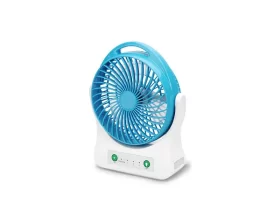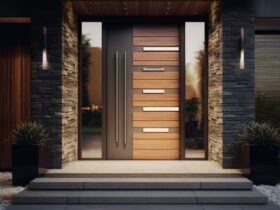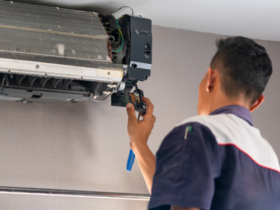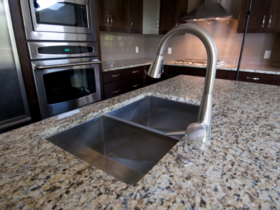Vinyl flooring is a great option for home and business owners who want to add a bit of personality to their spaces. Vinyl is an affordable alternative to carpets, and it can be installed in any room of your house or business.
Vinyl flooring is durable, easy to clean and maintain, non-slip, fire resistant, and doesn’t retain moisture. It’s also quieter than most other flooring options.
Vinyl flooring is available in many different styles including:
- PVC: Popular for residential use because it’s lightweight, flexible, and easy to install. PVC resins are waterproof and can withstand high-traffic areas like kitchens or bathrooms.
- Epoxy: Epoxy resin comes in three grades based on the type of resin used in its manufacture – polyester resin (PE), epoxy resin (EP), or no resin at all (NR). PE is more expensive than EP but has higher tear strength while EP offers more flexibility than NR.
- Carpet: Carpet is the most common vinyl alternative because there are so many styles available at varying price points depending on thickness, width, color, and pattern.
Common types of vinyl floors
Vinyl flooring is a versatile, cost-effective product that can be installed over almost any surface. A vinyl floor offers many advantages over other types of flooring materials. Vinyl is easy to clean, it won’t stain or wear out, and it’s fairly inexpensive. You can even use different colors of vinyl to create a patterned or decorative look on your floors.
Vinyl comes in a variety of textures, colors, and styles that are designed to complement various decorating styles. The most common types of vinyl floors are:
Flooring for residential use – This type of vinyl flooring is suitable for both residential and commercial applications. It’s available in solid colors or patterns that are easy to maintain and clean with regular wiping down with an upholstery brush or mop. Residential flooring options include carpet tiles, wood plank laminate, and linoleum tile.
Flooring for commercial businesses – Commercial businesses require a durable flooring that will last through years of heavy use without showing wear and tear like wood planks do after only a few months. Commercial vinyl options include durable tile designs perfect for wet areas such as kitchens and bathrooms where spills could ruin other types of floors.
Benefits of vinyl flooring material
Vinyl floors can be installed in any room of the house, and they can be easily cleaned. Vinyl flooring is a good choice for people who don’t want to pay for expensive ceramic or stone surfaces. It is much cheaper than other materials, and it looks great too.
- Vinyl flooring has many benefits over other materials:
- It’s easy to clean, which makes it great for kids’ bedrooms and kitchens where spills may happen.
- It’s durable, which means that you won’t need to worry about replacing your vinyl flooring every few years.
- It has a low initial cost, so you won’t have to worry about additional costs when you install it.
Vinyl Flooring Advantages
Versatility: You can install vinyl tile in many different ways, including floating, interlocking, and gluing down. Unlike carpet or other flooring materials, you don’t have to worry about seams or edges.
Maintenance-free: Vinyl flooring is easy to maintain and clean. It requires no special tools or equipment and can be cleaned with a hose or mop.
Beautiful appearance: Vinyl flooring is available in a wide range of colors and patterns that are perfect for both residential and commercial spaces.
Easy installation: Vinyl tiles are easy to install because they are pre-glued and require no additional preparation during installation.











